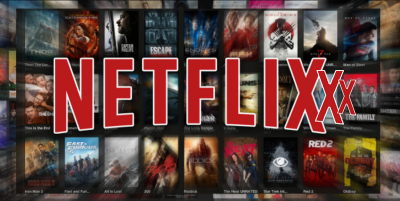- Because Our Children Are Watching
- Join the Cause
- Donate
Written by PTC | Published February 6, 2019
 If you go to Netflix and browse through the TV Shows on tap, you’ll typically see a number of subgroups designed to help the user quickly identify and locate programming that might suit their mood at the moment or their tastes more broadly.
Those categories might include “Recently Added,” “Trending Now,” or “Popular on Netflix.” They might include categories suggested by programs you’ve recently watched, like “Retro TV” or “Period Pieces.” And then there are broader, catch-all groupings like “TV Action & Adventure,” “Docs and Reality TV,” “TV Comedies,” and “TV Dramas.”
Or you might see “Teen TV.” And what Netflix considers “Teen TV” might surprise you.
Instead of the winsome and light-hearted “Sabrina the Teenage Witch,” you’ll find the much darker “Chilling Adventures of Sabrina,” which featured a teen orgy scene. Instead of “Supergirl” or “The Flash,” you’ll find “Riverdale,” based on the Archie comic, but with decidedly adult content such as a striptease hot tub scene with teen characters.
Netflix is also promoting MA-rated content to young viewers that includes the original UK version of “Skins,” a high school drama featuring explicit sexual situations and illicit drugs; “Baby,” about a teenage prostitute; and “Sex Education,” a sexually explicit drama about a high school aged boy who gives sex advice to his peers.
By comparison, there have been plenty of shows on broadcast and cable TV that are geared to a teen audience but that are also relatively responsible in their messaging – but that’s not what you’ll find on Netflix.
Consider this as well: “Teen TV” is more likely to appeal to a 13-year-old than an 18-year-old.
A 13-year-old is on the verge of entering high school, trying to make sense of a new, difficult and confusing social hierarchy. Young adolescents are seeking to understand their rapidly changing bodies and the powerful emotional and hormonal upheaval that goes along with it, scared to ask questions and desperately seeking assurance that they are normal.
In other words, “Teen TV” appeals to young teens who are looking for guidance about what to expect in high school -- not older teens who are about to leave all of that behind. Eighteen-year-olds don’t self-identify as teenagers -- they are legally adults with adult rights, privileges and responsibilities. They aren’t looking in the rear-view mirror at high school; they’re looking forward to a life beyond gym class and homeroom.
There’s a vast difference between the two in terms of maturity, life experience and readiness for adult subject matter and content - which is why the programs populating the “Teen TV” category on Netflix are so problematic.
Netflix is deliberately creating or ordering MA-rated content for teen audiences and placing these programs in categories that will be specifically sought-out by younger teen viewers.
We’ve called on Netflix to stop marketing explicit, harmful content to children and teens. It’s time for Netflix to heed this call.
If you go to Netflix and browse through the TV Shows on tap, you’ll typically see a number of subgroups designed to help the user quickly identify and locate programming that might suit their mood at the moment or their tastes more broadly.
Those categories might include “Recently Added,” “Trending Now,” or “Popular on Netflix.” They might include categories suggested by programs you’ve recently watched, like “Retro TV” or “Period Pieces.” And then there are broader, catch-all groupings like “TV Action & Adventure,” “Docs and Reality TV,” “TV Comedies,” and “TV Dramas.”
Or you might see “Teen TV.” And what Netflix considers “Teen TV” might surprise you.
Instead of the winsome and light-hearted “Sabrina the Teenage Witch,” you’ll find the much darker “Chilling Adventures of Sabrina,” which featured a teen orgy scene. Instead of “Supergirl” or “The Flash,” you’ll find “Riverdale,” based on the Archie comic, but with decidedly adult content such as a striptease hot tub scene with teen characters.
Netflix is also promoting MA-rated content to young viewers that includes the original UK version of “Skins,” a high school drama featuring explicit sexual situations and illicit drugs; “Baby,” about a teenage prostitute; and “Sex Education,” a sexually explicit drama about a high school aged boy who gives sex advice to his peers.
By comparison, there have been plenty of shows on broadcast and cable TV that are geared to a teen audience but that are also relatively responsible in their messaging – but that’s not what you’ll find on Netflix.
Consider this as well: “Teen TV” is more likely to appeal to a 13-year-old than an 18-year-old.
A 13-year-old is on the verge of entering high school, trying to make sense of a new, difficult and confusing social hierarchy. Young adolescents are seeking to understand their rapidly changing bodies and the powerful emotional and hormonal upheaval that goes along with it, scared to ask questions and desperately seeking assurance that they are normal.
In other words, “Teen TV” appeals to young teens who are looking for guidance about what to expect in high school -- not older teens who are about to leave all of that behind. Eighteen-year-olds don’t self-identify as teenagers -- they are legally adults with adult rights, privileges and responsibilities. They aren’t looking in the rear-view mirror at high school; they’re looking forward to a life beyond gym class and homeroom.
There’s a vast difference between the two in terms of maturity, life experience and readiness for adult subject matter and content - which is why the programs populating the “Teen TV” category on Netflix are so problematic.
Netflix is deliberately creating or ordering MA-rated content for teen audiences and placing these programs in categories that will be specifically sought-out by younger teen viewers.
We’ve called on Netflix to stop marketing explicit, harmful content to children and teens. It’s time for Netflix to heed this call.